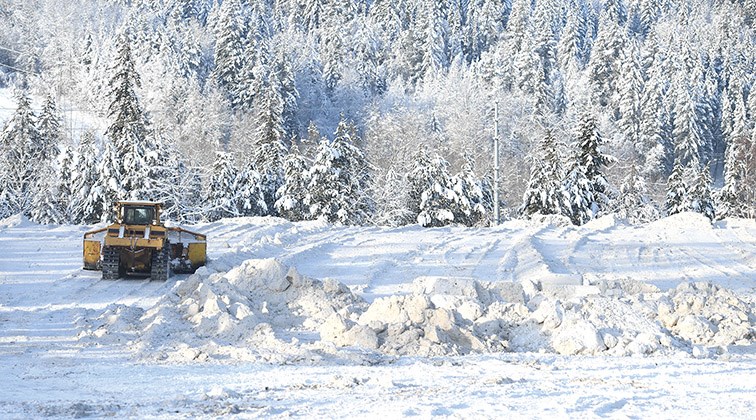A retired manager has generated several suggestions for improving the city's snow control service.
Frank Blues, who managed snow removal and budgeting for the majority of his 30 years with the City, was asked in March to carry out a review following heavy criticism of the City's performance when heavy snowfall struck the city this past December and January.
A 33-page report is the result and in it, Blues provides a wide range of proposals on which routes and areas should get priority, monitoring performance and setting a budget for the service.
They include providing more clarity on what are considered arterial roads.
In the snow removal bylaw, the terms main arterial roads is used and is comprised of a "confusing" list of arterial, collector and local roads. Instead, he calls for classifying arterial roads solely on function and traffic volume.
Blues also calls for reintroducing collector roads and assign them to the list of priority two routes.
Blues also suggests relegating hills not on arterial roads to priority two from priority one to avoid the need for plows and graders to travel over uncleared collector roads. With the change, he said a collector road could be cleared first followed by the hill for "maximum benefit to the greatest number of road and sidewalk users."
"An example of this revision would apply to Aberdeen Road which currently has three priority one hills intersecting Aberdeen - Inverness, Walker, Skyline and McAndrew off Skyline," he says in the report.
Either way, he notes both priority one and two roads are to be cleared within 48 hours of an event that has accumulated 7.5 cm of snow over 24 hours.
Reintroducing collector roads will require a tradeoff.
"Something has to give, somewhere. We don't have the resources to do it all at once," Blues said during a presentation to council on Monday night.
On that note, he suggests reducing residential roads in the vicinity of the hospital from priority one to priority three while leaving parking restrictions in place to allow clearing at night. People would still be able to reach the hospital, he stressed, because adjacent arterial and collector roads would remain at their priorities.
Blues also proposes a system for risk-based budgeting for the service that would take into account the service levels the city has gone through over the previous 30 years, ranking them from lowest to highest and then basing the budget on the 18th busiest so that "you've got 60 per cent of the typical calendar year covered."
Other suggestions include:
- Relegating civic facilities that get only minor amounts of traffic priority three where clearing would be completed within 72 hours of work being finished on priority ones and twos and after snowfall has reached 12 cm within 24 hours.
- Reintroducing a "heavy snowfall declaration" that would advance the start time for nighttime snow clearing on priority ones to 11 p.m. from 1 a.m. Blues left it up to council to decide at what amount of snow a declaration would be issued but suggests the completion time be extended by 24 hours for each additional 10 cm of snow over the triggering point.
- Use a combination of automated vehicle location devices and computer software to provide real-time progress on snow clearing around the city.
During a question and answer period following Blues' presentation, Coun. Susan Scott said vacation blackout periods may have to be considered as a firmer policy is developed.
Staff will provide a followup report on proposed changes to related bylaw and policies to council for the June 24 meeting.



.png;w=120;h=80;mode=crop)